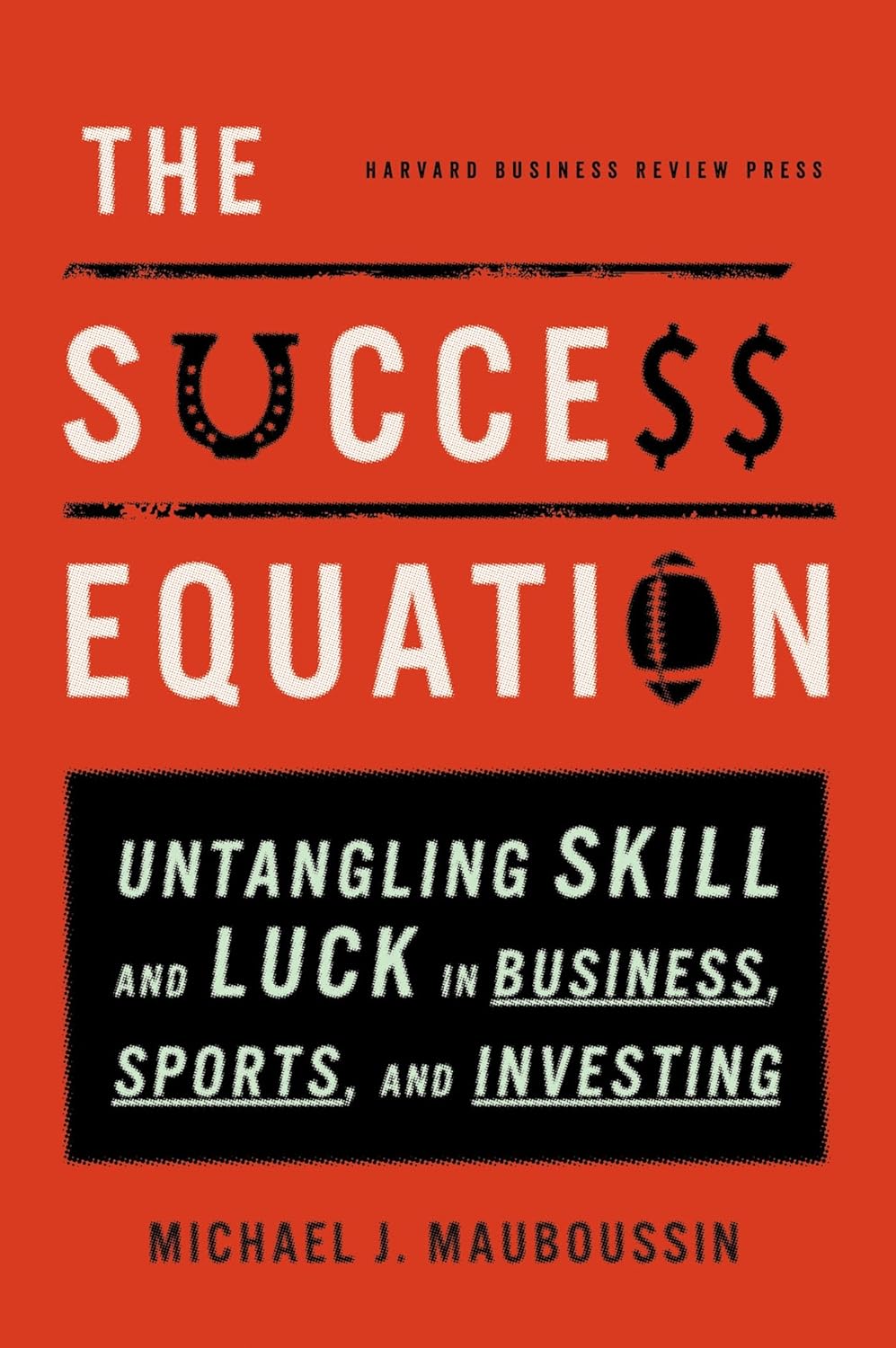This Week's Book: Michael Mauboussin on Luck vs Skill in Success
I first read Expectation Investing by Michael Mauboussin this past summer, and I ended up reading that book twice and starting to read all of Mauboussin’s other books. This post is about the fourth of his books that I’ve read in the last few months, and it didn’t disappoint.
The Success Equation is about understanding the impact that luck and skill have on your successes and failures. The book provides a framework for understanding, in advance, how much skill and luck will impact a decision or activity. Understanding how what you want to do is affected by skill and luck can alter your planning, expectations, learnings, and a host of other things.
This book is full of things I’ve found helpful, two of which I’ve written about already:
Another concept that stuck with me is what he called the “luck-skill continuum.” Mauboussin explained how to gauge the extent to which an activity is influenced by skill and luck by visualizing it on a continuum. He then explained why the sample size required to draw a reasonable conclusion about future expectations differs for activities heavily influenced by skill vs. luck. He also explained reversion to the mean and why it impacts activities of skill and luck differently. I have lots of notes and highlights in the chapter on the luck-skill continuum that I’ll revisit often.
This book was a great read. Anyone interested in improving their chances of success by improving their decision-making should consider reading The Success Equation.




